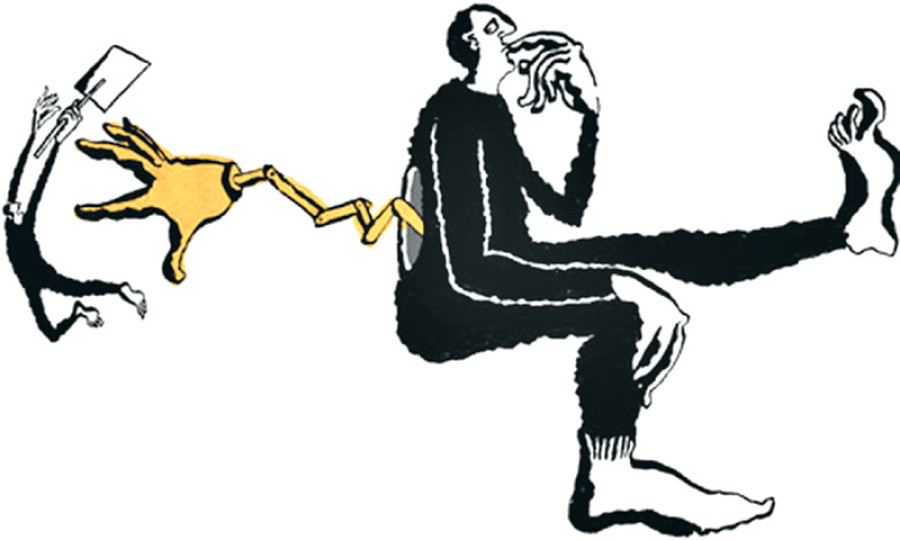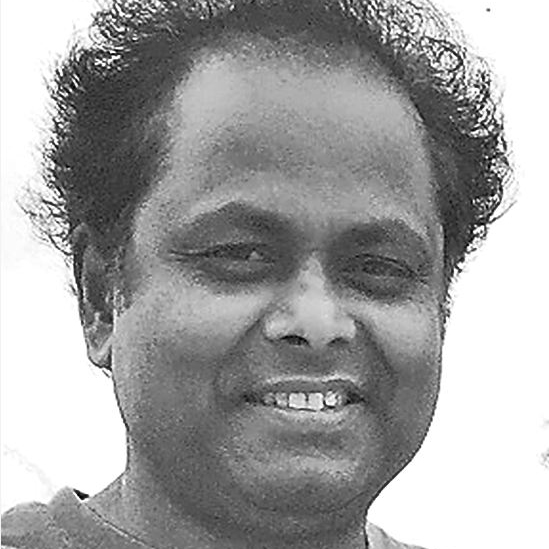Opinion
A third people’s movement
The Oli regime has begun to show signs similar to those of the waning days of Panchayat
Pramod Mishra
Oli regime’s arbitrary exercise of state power to arrest and imprison has offered a sense of déjà vu of the waning days of Panchayat, when any zonal commissioner in any part of the country could and did arrest and imprison people by using a draconian law called ‘peace and safety’ or simply ‘public safety’. One such arrestee and prisoner was my friend and colleague Mr Karki. We both taught at the same college in the middle of Kathmandu and over the years of working together we had formed a bond of friendship and trust, so much so that when he was getting ready to marry a Chhetri woman of Dehradun who lived in Banaras, he asked me to visit the woman’s family, meet her and report my impression to him. If I okayed it, he would do it. Both the woman and her family impressed me. She held an MA, while her uncle and cousin were professors at Banaras Hindu University. I told him all that but also asked him to meet the woman himself at least once before the wedding. But before this could happen, the Bagmati Zonal Commissioner Mr Thapa had him arrested for violating peace and safety.
Recalling Panchayat
When I went to see him at Hanuman Dhoka police custody, the DSP said his has orders from above not to allow any visitors. I then went to the SSP, one Mr Kharel, and presented my argument as diplomatically as possible. Kharel hesitantly let me in. Kailash, from behind iron bars, asked me to visit Benaras again to inform the woman’s family and persuade them to wait for a few weeks because my friend was sure he would be released.
When I broke the news of the potential groom’s imprisonment, the Indian middle class, risk-averse family of professionals were taken aback. How could such a degrading thing happen to their future groom? Imprisonment happens to thieves and murderers. There must be more than just politics. (My friend had been one of the three top student leaders of 2036 BS.) I mentioned Gandhi and Nehru as examples, who spent years in prison for their political beliefs. While I could not totally win their confidence, I at least managed to get a stay of the wedding plans. Back in Kathmandu, I began visiting my friend every week in Bhadra Gaol, where he had been transferred, hoping he would be released soon. The fear of the Panchayat had seeped so deeply into people’s consciousness that my friend was hardly visited by his family, let alone by our colleagues from college. Officers from the university teachers’ union asked me about him but paid only lip service, many blaming my friend for his undoing—dharna in front of Bhaktapur district education office, which had voided his students’ private SLC exams.
Weeks of imprisonment grew into months and months became one year, then two. I met the zonal commissioner in his Rani Pokhari Office, presented my argument before him for my friend’s release. Kathmandu was after all Kathmandu. Maathi (higher up) always meant the Palace. By the time my friend was deemed no longer a threat to the system and was released at the end of two years, the arrangement for his marriage had been dissolved and his coaching institute for which he had worked his heart out to get going—I had never seen anyone working so hard on something—had shut down.
That was just one example of what was done to an academic in the heart of Kathmandu. Ordinary men and women were getting arrested for sundry reasons and imprisoned indefinitely. From the outside, it appeared that the system had consolidated itself beyond vulnerability. It gave an aura of an impregnable fortress, with the police and the Army as rock-hard muscle and the Panchayat Policy and Investigation Commission (Panchyat Niti tathaa Jaanchbujh aayog) as its ideological driving force that recruited mostly left-leaning college and university teachers on royal birthdays and regime days to travel to far-flung areas of the country to offer paeans of praise to the king, his father and the system the father had endowed and the son nurtured. But now we know that the hollower the system became, the more aggressively it displayed its muscle in public.
A hollow core
The Oli regime has begun to show similar signs. After chiding the NHRC commissioner Mohna Ansari for doing her duty, it arrested Kanak Dixit for reviving the moribund SajhaYatayat. As soon as it released Dixit, it arrested a Canadian scientist for tweeting (for the government, it was “spoiling social harmony”). And now, it has arrested Shesh Narayan Jha, a journalist working for RSS (the National News Service) for doing his duty of taking a photograph.
Similar to the Panchayat’s waning days, it is obvious that the Oli regime of neo-Panchas is hiding its increasingly hollow core with its outer bravado and muscle-flexing. Its partner in crime of constitution making, the Nepali Congress, is unhappy with it. Maoists backtracked on toppling Oli only when the Chinese intervened. Even Oli’s fellow party comrades have begun to speak of a sudden explosion because of Oli’s highhandedness.
For them, it is only within the party. But the growing disaffection of the public for the Oli regime’s incompetence in managing the aftermath of the April 2015 earthquake, the increasing discontent of the educated youth of conscience at Oli’s rigid stance on the status quo of monoculturalism, the failure to persuade the Madhesi and Janjaati groups to come to the negotiating table, and, above all, the deep Swiftian contempt in which the intelligentsia—journalists, professionals and social media users—has begun to hold Oli and his mistimed jokes and highfalutin claims might lead to a third people’s movement. If the first people’s movement of 1990 was to end the Panchyat’s repression and open Nepali society for free political parties and media and the second movement of 2006 came as a wave to sweep away Nepal’s 250-year-old monarchy, opening the floodgates to cultural freedom but also the entrenchment of the old regime in the guise of ultranationalism, then the third movement could legitimise constitutionally the multicultural nature of Nepali society. One only hopes that things do not spiral out of control before desirable changes take place.




 15.12°C Kathmandu
15.12°C Kathmandu










